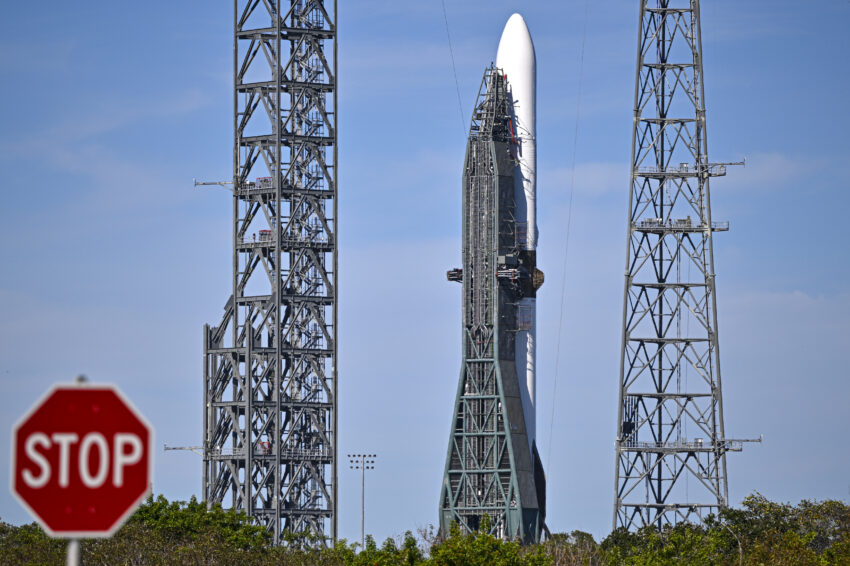
blue origin scrubs second new glenn launch Blue Origin has postponed the second launch of its New Glenn rocket due to unfavorable weather conditions, impacting NASA’s upcoming Mars mission.
blue origin scrubs second new glenn launch
Launch Postponement Details
The second launch of Blue Origin’s partially reusable New Glenn rocket was originally scheduled for Sunday but was scrubbed due to adverse weather conditions. The Jeff Bezos-owned commercial space company announced that the next launch window from Cape Canaveral Space Force Station in Florida will be attempted “no earlier” than Wednesday, November 12th, between 2:50 PM and 4:17 PM ET. This delay adds another layer of uncertainty to an already complex mission timeline.
Significance of the New Glenn Launch
This upcoming launch is particularly significant for Blue Origin as it marks a critical step in the company’s ambitions to establish itself as a serious player in the commercial space sector. The New Glenn rocket, standing at an impressive 320 feet tall, is designed to carry NASA’s twin ESCAPADE (Escape and Plasma Acceleration and Dynamics Explorers) probes into space. This mission represents the first Mars-bound endeavor since NASA launched its Perseverance and Ingenuity vehicles in 2020, which have been exploring the Martian surface.
The ESCAPADE satellites are projected to reach Mars orbit in 2027, where they will conduct vital measurements of the planet’s magnetic field and atmosphere. These measurements are crucial for understanding Mars’ climate and its potential for past or present life. The success of this mission could yield significant scientific insights and enhance our understanding of planetary atmospheres, particularly in relation to habitability.
Challenges in Launching New Glenn
Blue Origin’s New Glenn rocket faces several challenges as it prepares for its second launch attempt. One of the primary hurdles is the company’s goal to successfully land the rocket’s reusable first-stage booster. This booster is designed to vertically touch down on a sea-based platform after launch, similar to the landing techniques employed by SpaceX with its Falcon rocket boosters. Although Blue Origin successfully launched New Glenn for the first time in January, the booster was lost during its landing descent, highlighting the complexities involved in achieving a successful recovery.
A successful launch and landing would not only validate Blue Origin’s engineering capabilities but also position the company as a credible deep-space launch provider. Competing against established players like SpaceX and United Launch Alliance (ULA) is no small feat, and a successful mission could significantly bolster Blue Origin’s reputation in the aerospace industry.
Collaboration with Regulatory Bodies
In preparation for the upcoming launch, Blue Origin has been working closely with the Federal Aviation Administration (FAA) to select an appropriate launch window. Notably, the company appears to have received an exemption from new FAA regulations that prohibit commercial rocket launches between 6 AM and 10 PM. This emergency order was implemented on November 10th to alleviate air traffic congestion during the ongoing government shutdown. Such regulatory hurdles are common in the aerospace industry, where safety and airspace management are paramount.
The collaboration with the FAA underscores the importance of regulatory compliance in the commercial space sector. As private companies increasingly engage in space exploration, navigating the complex landscape of regulations becomes essential for ensuring safe and successful missions. The FAA plays a crucial role in overseeing commercial space launches, and Blue Origin’s proactive engagement with the agency reflects its commitment to adhering to safety standards.
Public Engagement and Transparency
As part of its efforts to engage the public and maintain transparency, Blue Origin plans to host a live webcast for New Glenn’s second flight. The webcast is scheduled to begin 20 minutes prior to the launch, allowing viewers to witness the launch process in real-time. This initiative is part of a broader trend among space companies to leverage digital platforms for public engagement, fostering interest in space exploration and science.
Public interest in space missions has surged in recent years, driven in part by the increasing frequency of launches and the involvement of private companies. By providing live coverage, Blue Origin aims to demystify the launch process and create a sense of excitement around its missions. This approach not only serves to inform the public but also helps to build a community of supporters and enthusiasts who are invested in the company’s success.
Implications for NASA and Future Missions
The delay of the New Glenn launch has broader implications for NASA’s Mars exploration agenda. The ESCAPADE mission is part of a larger strategy to study Mars and its environment, which includes a series of missions aimed at understanding the planet’s geology, climate, and potential for life. Delays in launching critical components of this strategy can have cascading effects on subsequent missions and research timelines.
NASA has been increasingly relying on partnerships with commercial space companies to achieve its goals. The agency’s collaboration with Blue Origin for the ESCAPADE mission exemplifies this trend. As NASA seeks to expand its exploration efforts, the success of commercial partners becomes increasingly vital. A successful launch of the New Glenn rocket would not only advance NASA’s objectives but also reinforce the viability of public-private partnerships in space exploration.
Stakeholder Reactions
Reactions from stakeholders in the aerospace community have been mixed following the announcement of the launch delay. Some industry experts express concern over the implications of repeated delays, particularly as they relate to the reliability of new launch vehicles. Others, however, emphasize the importance of prioritizing safety and ensuring that all systems are functioning optimally before proceeding with a launch.
The competitive landscape of the aerospace industry adds another layer of complexity to stakeholder reactions. Companies like SpaceX have set high standards for launch frequency and reliability, and Blue Origin’s ability to meet these expectations is closely scrutinized. A successful launch of New Glenn could enhance Blue Origin’s standing in the industry, while repeated delays may raise questions about its operational capabilities.
Conclusion
The postponement of Blue Origin’s second New Glenn launch underscores the challenges and complexities of modern space exploration. As the company prepares for its next launch attempt, the stakes are high—not only for Blue Origin but also for NASA and the scientific community at large. The outcome of this mission could have lasting implications for our understanding of Mars and the future of commercial space travel.
As the countdown to the new launch window approaches, all eyes will be on Cape Canaveral. The success of the New Glenn rocket could pave the way for future missions and solidify Blue Origin’s role in the evolving landscape of space exploration.
Source: Original report
Was this helpful?
Last Modified: November 10, 2025 at 5:36 pm
3 views















